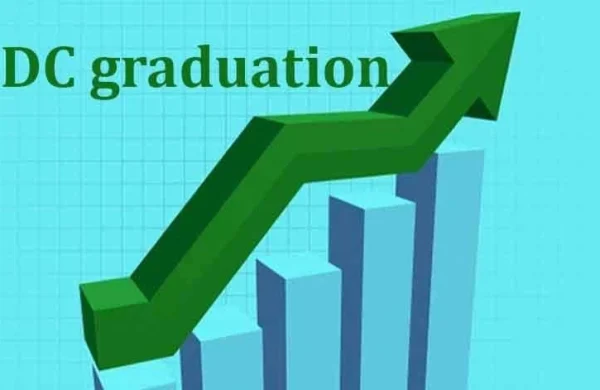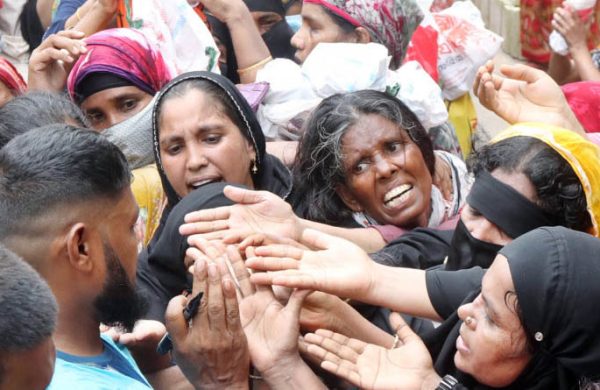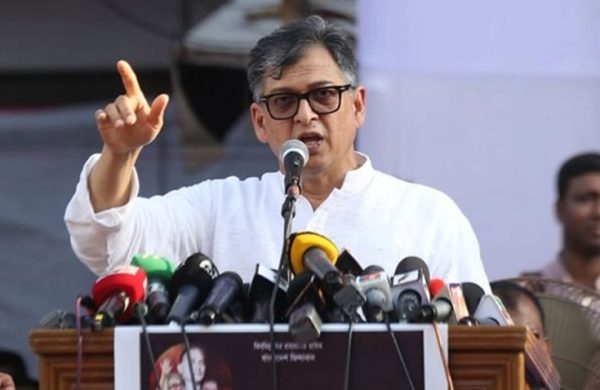Business leaders urge 6-year extension for Bangladesh’s LDC graduation
- Update Time : Thursday, August 14, 2025

TDS Desk:
Business leaders on Thursday called for extending Bangladesh’s graduation time from the Least Developed Country (LDC) category by six years, warning that moving ahead with the transition next year would be a ‘mistake’ which may harm the country’s private sector.
Speaking at a seminar titled ‘LDC Graduation: Some Options for Bangladesh’ organised by the International Chamber of Commerce, Bangladesh (ICCB), they said the country is not yet prepared for the shift.
In his opening remarks, ICCB President Mahbubur Rahman said Bangladesh still lacks preparations for LDC graduation for weak capacity in free trade negotiations, limited export diversification, shortage of skilled human resources in industries, insufficient foreign investment inflow, inadequate institutional capacity and the absence of climate
“Moving ahead without addressing these issues will only expose the economy to serious risks,” he warned.
The ICCB president pointed out that the first blow of graduation would come from tariff hikes and losing Generalised System of Preferences (GSP) and other trade benefits could shrink exports by 6–14 percent.
Sanya Reid Smith, Legal Adviser and Researcher at the Third World Network, presented the keynote paper, pointing out that several countries, despite being eligible, postponed their LDC graduation.
Sanya said Angola withdrew from the process just a week before its scheduled graduation, while Myanmar, set to graduate in 2024, chose not to proceed.
President of the Bangladesh Association of Pharmaceutical Industries (BAPI) Abdul Muktadir said the pharmaceutical sector is already under pressure, with 30 percent of the top 100 companies struggling to survive.
Without current patent exemptions, the prices of essential medicines would skyrocket after graduation — for example, the hepatitis B vaccine, now costing a few hundred taka, could rise to USD 1000, Sanya said.
He alleged that the BAPI already holds a list of medicines likely to be affected, along with their expected post-graduation prices, yet has shown no interest in engaging with industry stakeholders.
“The pharmaceutical industry now earns USD 3 billion annually from exports; with proper attention, this could be doubled,” he said.
Bangladesh Garment Manufacturers and Exporters Association (BGMEA) President Mahmud Hasan Khan Babu said the country will graduate eventually, but not now, stressing the need for more preparation. “If we proceed without addressing the current crisis in the energy sector, the garment industry will face a collapse,” Babu warned.
While reserves have grown and there are sufficient dollars to import LNG, Bangladesh lacks the capacity to import enough of it, he said. Deep-sea ports, essential for easing LNG imports, are still not ready, he added.
Leather goods and footwear exporters echoed similar concerns.
Syed Nasim Manzur, President of the Leather goods and Footwear Manufacturers and Exporters Association of Bangladesh (LFMEAB), described graduation before six years as ‘suicidal’ for the country.
He urged the government to wait until 2032, citing growing competitiveness challenges in the global market and high shipping costs that neighbouring countries do not face.
President of the Dhaka Chamber of Commerce and Industry (DCCI) Taskeen Ahmed said 90 percent of the country’s exports come from pharmaceuticals, garments, and leather — sectors whose leaders are unanimously calling for a six-year delay.
“If the government has a better proposal, it should discuss it with businesses,” he added.
Supporting the call, Executive Director of the South Asian Network on Economic Modeling (SANEM) Selim Raihan stressed the need for coordination among the government, bureaucrats, and businesses.
He suggested Bangladesh also align with Nepal, which is scheduled to graduate next year.
“Other than the banking sector, no significant reforms have taken place in the economy,” he said, adding that many recommendations from the White Paper Committee have been ignored.
Without reforms, graduation could jeopardise free trade agreements and investment opportunities.
Centre for Policy Dialogue (CPD) Executive Director Fahmida Khatun said Bangladesh’s progress toward LDC graduation has been driven more by political considerations than economic readiness.
She warned that an agenda of political success alone would not ensure positive outcomes without adequate preparation.
Bangladesh is set to graduate from LDC status on November 24, 2026.
Once it does, the country will lose tariff and patent-related privileges currently enjoyed as an LDC.
Both business leaders and economists stressed the importance of completing necessary preparations before making the transition.

















